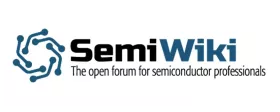Apple will NEVER use Intel Custom Foundry!
The media already has Apple and Intel in talks to make the A11 SoC in 2018 as a result of the recent Intel/ARM IP licensing deal. This is probably one of the funnier media bumbles I have read in a while so let’s talk about it in a little more detail.
“According to Nikkei Asian Review, Intel is now perfectly poised to give TSMC a good run for its money in as little as two years because any Apple chips after the A10/A11 should be fabricated by Intel.”
First a little bit of history: As we wrote in “Mobile Unleashed” Chapter 7, Intel had the opportunity to make Apple’s SoCs from the very start but Intel again could not see the forest for the trees:
“According to ex-CEO Paul Otellini, Intel had been in discussions about a mobile chip for Apple before the original iPhone design. The cloak of secrecy on the iPhone gave Intel little to go on, and they were skeptical of Apple’s volume projections. “There was a chip [Apple was] interested in that they wanted to pay a certain price for and not a nickel more, and that price was below our forecasted cost. I couldn’t see it,” said Otellini. Intel passed.”
To read the full article, click here
Related Semiconductor IP
- Specialized Video Processing NPU IP for SR, NR, Demosaic, AI ISP, Object Detection, Semantic Segmentation
- Ultra-Low-Power Temperature/Voltage Monitor
- Multi-channel Ultra Ethernet TSS Transform Engine
- Configurable CPU tailored precisely to your needs
- Ultra high-performance low-power ADC
Related Blogs
- Will Intel leave Mobile, Foundry, and FPGA Business?
- Andy Bryant Will Now Lead Intel Into The Foundry Era
- Apple Will NOT Manufacture SoCs at Intel
- Did Apple Influence AMD's TSMC Foundry Switch?
Latest Blogs
- Silicon Insurance: Why eFPGA is Cheaper Than a Respin
- One Bit Error is Not Like Another: Understanding Failure Mechanisms in NVM
- Introducing CoreCollective for the next era of open collaboration for the Arm software ecosystem
- Integrating eFPGA for Hybrid Signal Processing Architectures
- eUSB2V2: Trends and Innovations Shaping the Future of Embedded Connectivity
